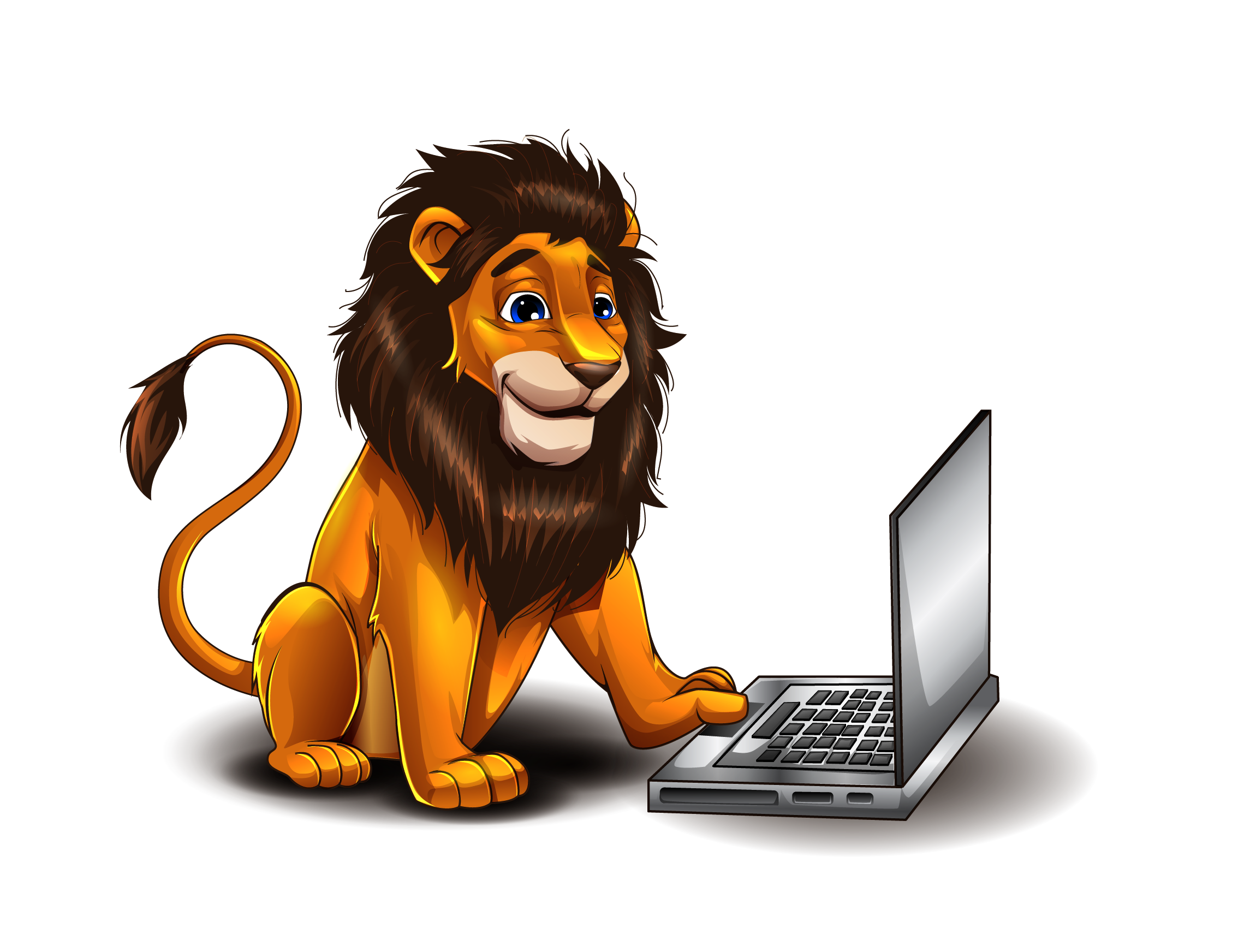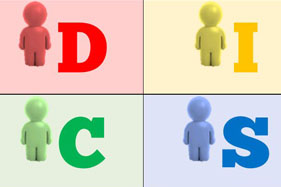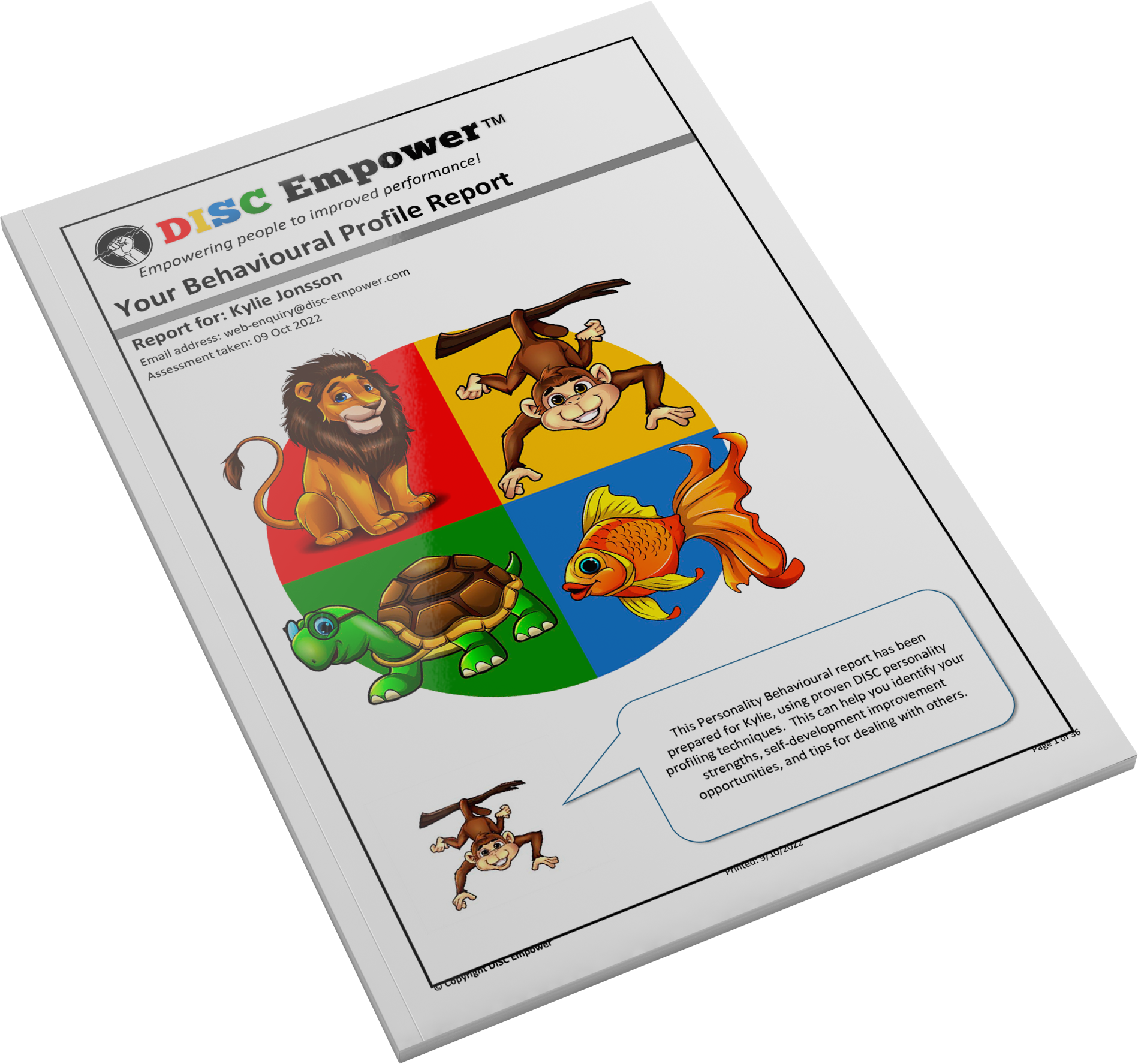Register Now
it is FREE to register so that you can view, print or save your DISC EmpowerTM results and reports once you have completed the assessment.

The History of DISC EmpowerTM Profiling.

444 BC - Empedocles (Greek Philosopher)
Empedocles was a Greek Philosopher and a citizen of Agrigentum, a Greek city in Sicily. Empedocles is best known for being the originator of the theory of the four Classical elements:
- Fire
- Earth
- Air
- Water
400 BC – Hippocrates (Greek Physician)
Hippocrates was a Greek physician, and is considered one of the most outstanding figures in the history of medicine. He used what is known as “the four temperaments” in his study of the human body, healing, etc. Hippocrates had refined Empedocles' work, recognising that internal factors influenced the way people behave. The four temperaments are:
- Sanguine (optimistic leader-like)
- Choleric (bad-tempered or irritable)
- Melancholic (analytical and quiet)
- Phlegmatic (relaxed and peaceful)

1920’s – Carl Jung (Swiss psychiatrist)
Jung was one of the first people to define introversion and extraversion in a psychological context. Introverts interpret the world subjectively, whereas extraverts interpret the world objectively. In 1921 Jung published his findings in a book, Psychological Types. This book introduced the idea that each person has a psychological 'type'. The academic language of the book made it hard to read and so few people could understand and use the ideas for practical purposes. He recognised four internal factors that influenced how people think and process information. These four factors are:
- Thinking
- Feeling
- Sensation
- Intuition

1928 – William Marston(American psychologist, lawyer, inventor)
Marston was a Harvard University physiological psychologist who wrote the book called “Emotions of Normal People”. In his book Marston viewed people behaving along two axes, with their attention being either passive or active; depending on the individual's perception of his or her environment as either favourable or antagonistic. Marston became known as the father of DISC behavioural profiling. By placing the axes at right angles, four quadrants form with each describing a behavioural pattern:
- Dominance produces activity in an antagonistic environment.
- Inducement produces activity in a favourable environment
- Submission produces passivity in a favourable environment
- Compliance produces passivity in an antagonistic environment.

1940’s – Profiling in the war
Leading up to WWII Marston’s DISC system was used by the US Army to help profile and correctly deploy recruits. During the war Henry Murray, a lieutenant colonel for the Office of Strategic Services (OSS), identified the core psychological needs (known as “Murray's system of needs”), including:
- Achievement
- Affiliation
- Power
In 1943 Murray helped complete Analysis of the Personality of Adolf Hitler. The report used many sources to profile Hitler, including informants. The ground-breaking study was the pioneer of offender profiling and political psychology, today commonly used by many countries as part of assessing international relations.
At the same time two American women, Isabel Briggs Myers and her mother Katharine Cook Briggs, set out to find an easier way for people to use Jung's ideas in everyday life. They wanted people to be able to identify their psychological types without having to sift through Jung's academic theory. They went on to develop the popular Myers-Briggs Type Indicator® (MBTI®) in the 1960’s.
1956 – Walter Clarke’s profiling tool
In 1956 Walter V. Clarke published a behavioural profiling questionnaire for individuals, based on the work of Marston. This was the first commercial quantity use of DISC Behavioural Profiling in the business world. This was later further developed by Dr John Geier, including his release of the Personal Profile System (PPS) in the 1970’s.
1978 – Taibi Kahler and NASA .

Dr. Taibi Kahler was a clinical psychologist who divided people into six main personality types, each of which has a different communication style and each of which has different stress triggers:
- Thinker
- Harmoniser
- Persister
- Rebel
- Imaginer
- Promoter
According to Dr Kahler, if you know the personality type of the person you’re speaking with you can modify your own communication style to work more effectively with them, prevent misunderstandings, and avoid inadvertently pushing the other person’s buttons.
This system became known as Process Communication Model (PCM), and in 1978 NASA took advantage of this process in the selection, placement, and training of astronauts. (Anyone with a college degree and some scientific experience can apply to be an astronaut. More than 6,000 people applied in 2013, but only eight individuals were selected!)
Current Time
By 2015 over 50 million people have used DISC Behavioural Profiling to develop themselves and their teams. The DISC EmpowerTM Team have now utilised these principles, and built an “all-new” system for conducting personality assessments.
DISC EmpowerTM are best known for their practical application of personality assessments in the workplace, by turning the knowledge into actionable professional development pathways.
The DISC EmpowerTM takes the answers given by the person completing the assessment, and references these answers against a complex database, to give a report to the user showing them what their key strengths are, how these can be leveraged, areas where they need to take care (ie weaknesses, plus risk of over-use of strengths), how to deal with the other personality types, plus others with the same type as yourself. Feedback from users of the DISC EmpowerTM system consistently report that the system has helped them in their career and in the life outside of the workplace.
The DISC EmpowerTM system can also be used by managers in recruitment (ie staff selection) of new staff, as well as the coaching and redeployment of existing staff.

Should DISC EmpowerTM be the sole decider for recruitment, role allocation, etc?
No; DISC EmpowerTM is profiling behaviour. This is how the person behaves in the four key areas in the workplace, being:
- How they deal with PROBLEMS,
- How they deal with other PEOPLE
- The PACE that they work
- Their compliance with POLICY and rules
If you have any questions about evaluating your team, or recruiting the right people for positions in your company, please contact the team at DISC EmpowerTM today!
References and further reading:
- http://www.myersbriggs.org/my-mbti-personality-type/mbti-basics/
- http://www.fastcompany.com/1706766/how-personality-test-designed-pick-astronauts-taking-pain-out-customer-support
- http://www.geierlearning.com/
- http://persolog.com.au/au/publishing/our-authors/prof-dr-john-g-geier/index.htm
- https://www.discprofile.com/what-is-disc/history-of-disc/
- https://www.discinsights.com/disc-history
- http://www.profileassessments.com/the-history-of-disc/
- https://en.wikipedia.org/wiki/DISC_assessment
- http://www.discprofilecanada.com/all-about-disc/what-is-disc/
- http://www.axiomsoftware.com/disc/history-and-development-of-disc-hippocrates-jung-marston.php
If you have any questions about evaluating your team, or recruiting the right people for positions in your company, please contact the team at DISC EmpowerTM today!




